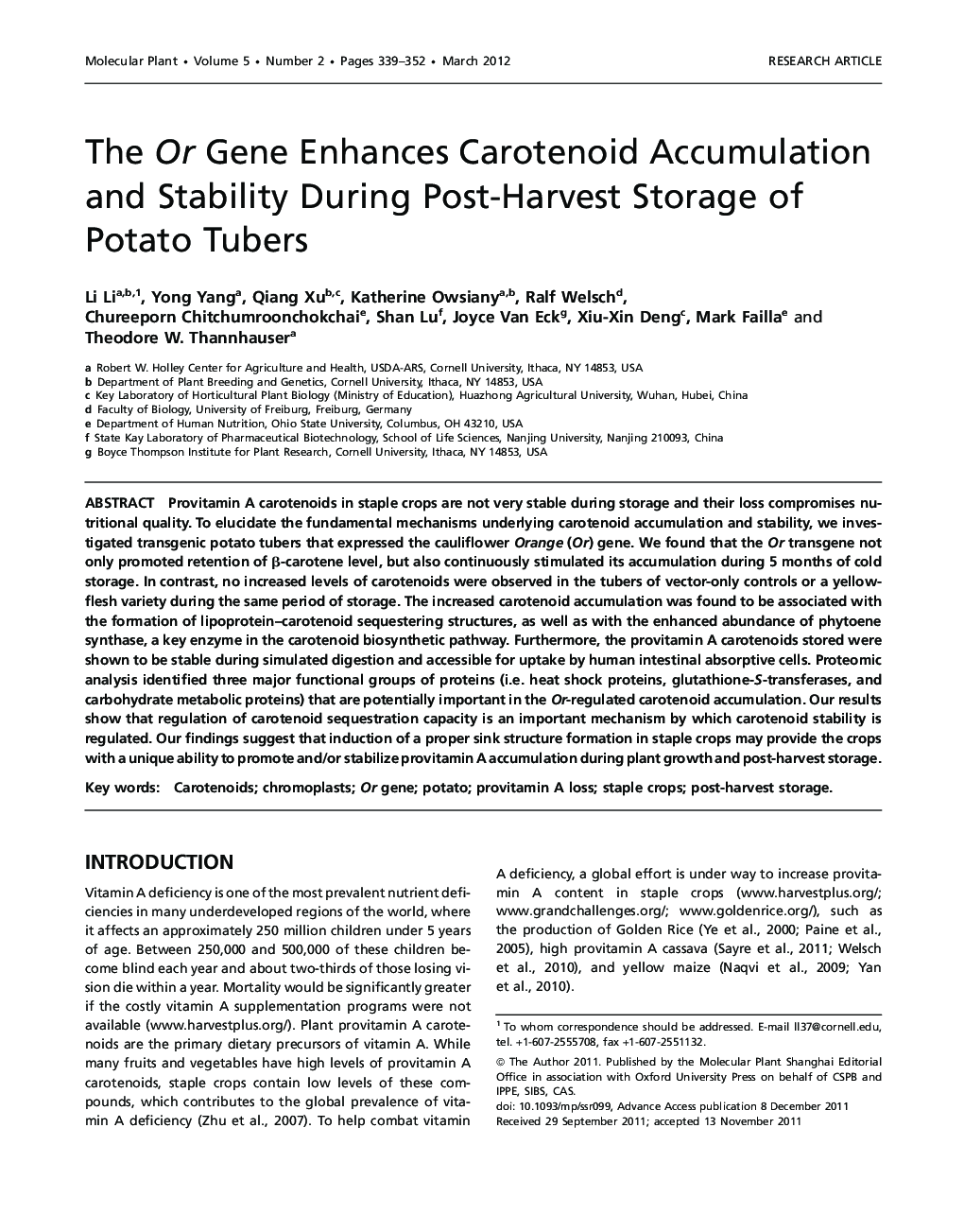| Article ID | Journal | Published Year | Pages | File Type |
|---|---|---|---|---|
| 4570547 | Molecular Plant | 2012 | 14 Pages |
ABSTRACTProvitamin A carotenoids in staple crops are not very stable during storage and their loss compromises nutritional quality. To elucidate the fundamental mechanisms underlying carotenoid accumulation and stability, we investigated transgenic potato tubers that expressed the cauliflower Orange (Or) gene. We found that the Or transgene not only promoted retention of β-carotene level, but also continuously stimulated its accumulation during 5 months of cold storage. In contrast, no increased levels of carotenoids were observed in the tubers of vector-only controls or a yellow-flesh variety during the same period of storage. The increased carotenoid accumulation was found to be associated with the formation of lipoprotein–carotenoid sequestering structures, as well as with the enhanced abundance of phytoene synthase, a key enzyme in the carotenoid biosynthetic pathway. Furthermore, the provitamin A carotenoids stored were shown to be stable during simulated digestion and accessible for uptake by human intestinal absorptive cells. Proteomic analysis identified three major functional groups of proteins (i.e. heat shock proteins, glutathione-S-transferases, and carbohydrate metabolic proteins) that are potentially important in the Or-regulated carotenoid accumulation. Our results show that regulation of carotenoid sequestration capacity is an important mechanism by which carotenoid stability is regulated. Our findings suggest that induction of a proper sink structure formation in staple crops may provide the crops with a unique ability to promote and/or stabilize provitamin A accumulation during plant growth and post-harvest storage.
